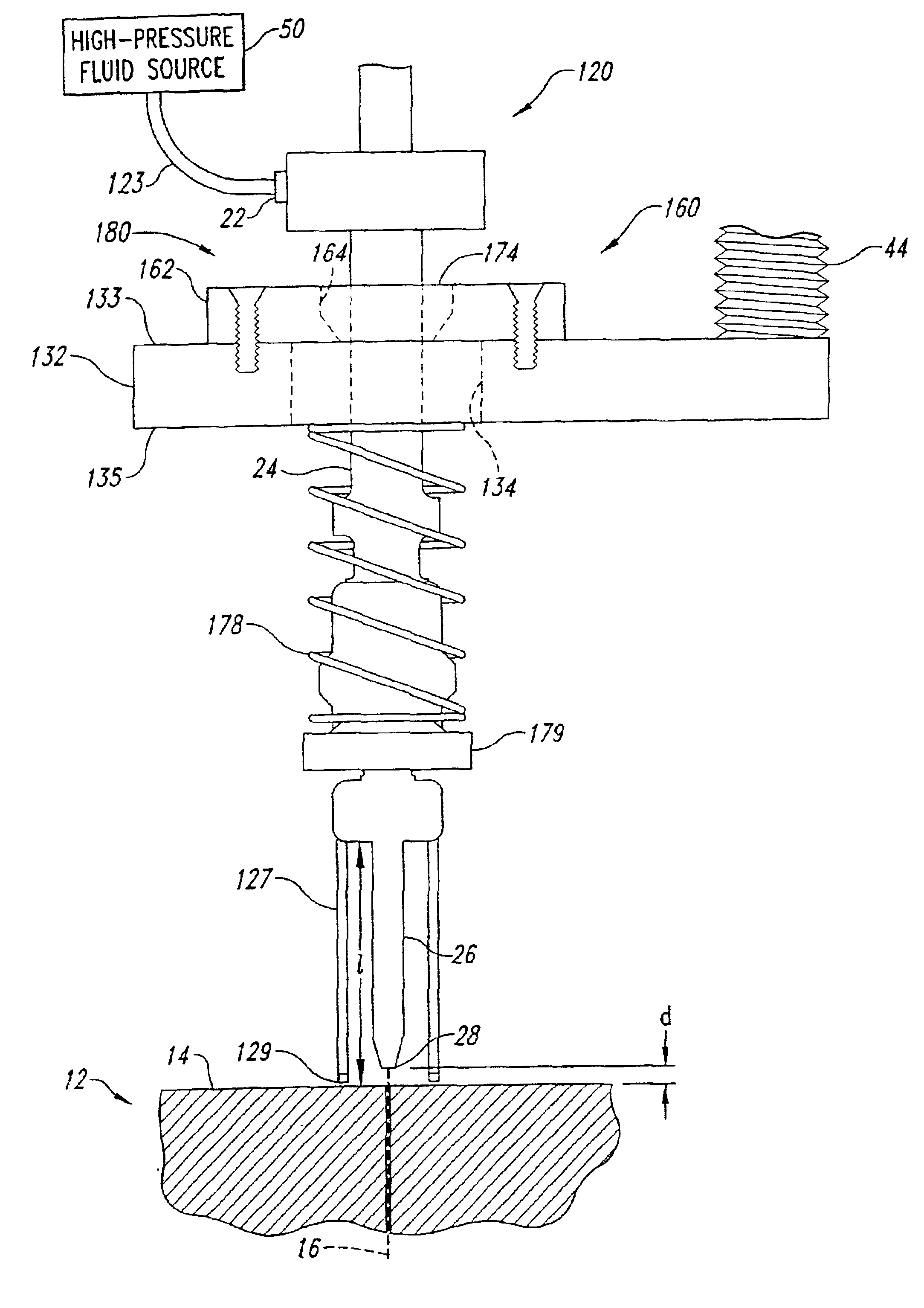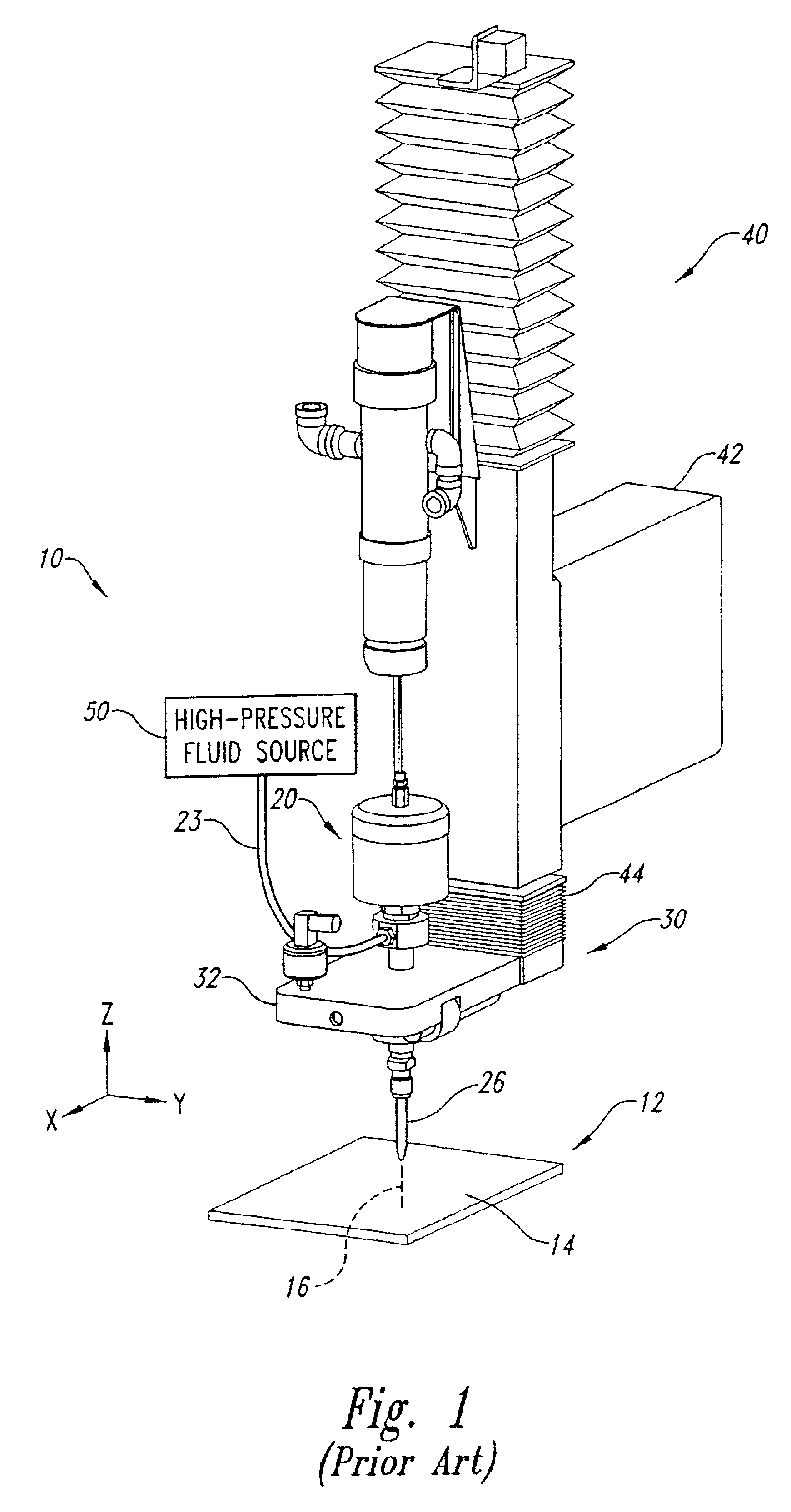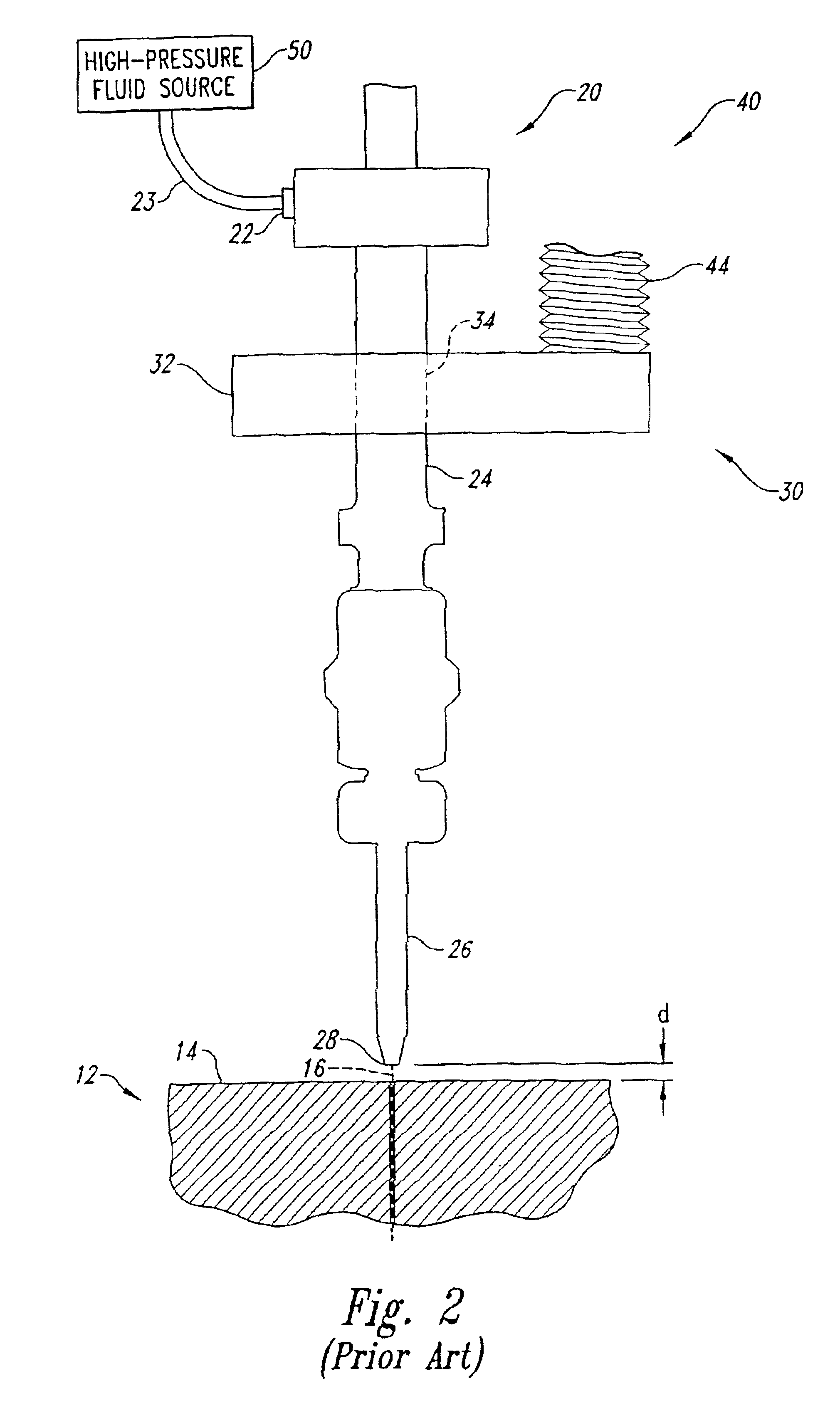Apparatus and methods for Z-axis control and collision detection and recovery for waterjet cutting systems
a technology of z-axis control and cutting system, which is applied in the direction of grinding machine components, metal-working machine components, manufacturing tools, etc., can solve the problems of system shutdown and possibly a damaged workpiece, mixing tubes are relatively expensive components of the cutting head, and the cutting head is relatively expensive. , to achieve the effect of preventing the cutting head from breaking, reducing the support force, and reducing the cost of the cutting head
- Summary
- Abstract
- Description
- Claims
- Application Information
AI Technical Summary
Benefits of technology
Problems solved by technology
Method used
Image
Examples
Embodiment Construction
The present disclosure is directed toward apparatus and methods for z-axis control and collision detection and recovery of cutting heads of waterjet cutting systems. Specific details of certain embodiments of the invention are set forth in the following description, and in FIGS. 3-9 to provide a thorough understanding of such embodiments. A person of ordinary skill in the art, however, will understand that the present invention may have additional embodiments, and that the invention may be practiced without several of the details described in the following description.
FIG. 3 is an isometric view of a waterjet cutting system 100 in accordance with an embodiment of the invention. The waterjet cutting system 100 includes a cutting head 120 coupled to a disengageable (or “breakaway”) mounting assembly 160. In the event of a collision, the disengageable mounting assembly 160 advantageously disengages (or “breaks”) to prevent breakage of the mixing tube 26 or other cutting head components...
PUM
| Property | Measurement | Unit |
|---|---|---|
| pressure | aaaaa | aaaaa |
| angle | aaaaa | aaaaa |
| volume | aaaaa | aaaaa |
Abstract
Description
Claims
Application Information
 Login to View More
Login to View More - R&D
- Intellectual Property
- Life Sciences
- Materials
- Tech Scout
- Unparalleled Data Quality
- Higher Quality Content
- 60% Fewer Hallucinations
Browse by: Latest US Patents, China's latest patents, Technical Efficacy Thesaurus, Application Domain, Technology Topic, Popular Technical Reports.
© 2025 PatSnap. All rights reserved.Legal|Privacy policy|Modern Slavery Act Transparency Statement|Sitemap|About US| Contact US: help@patsnap.com



